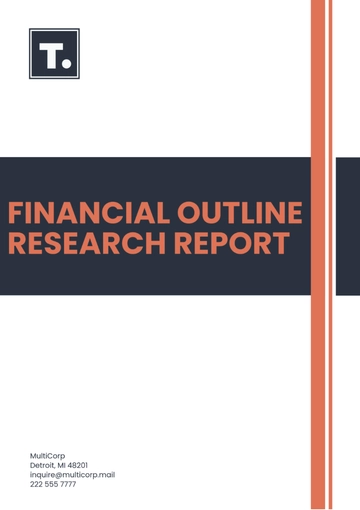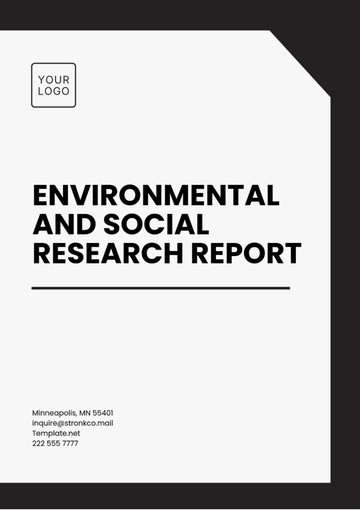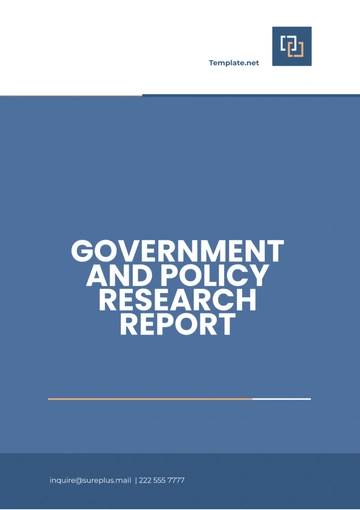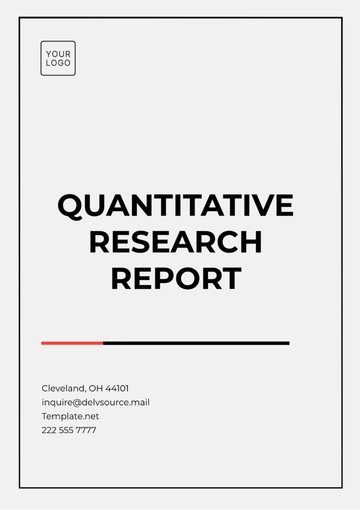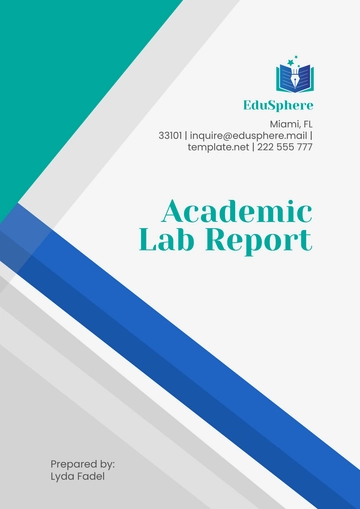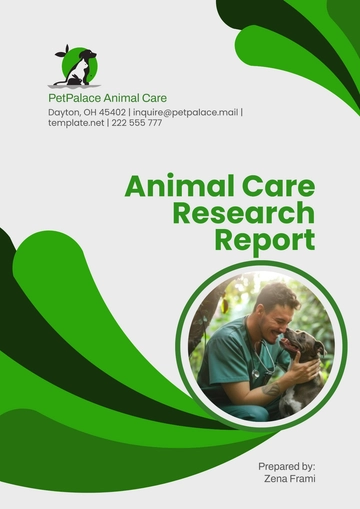Free Environmental and Social Research Report
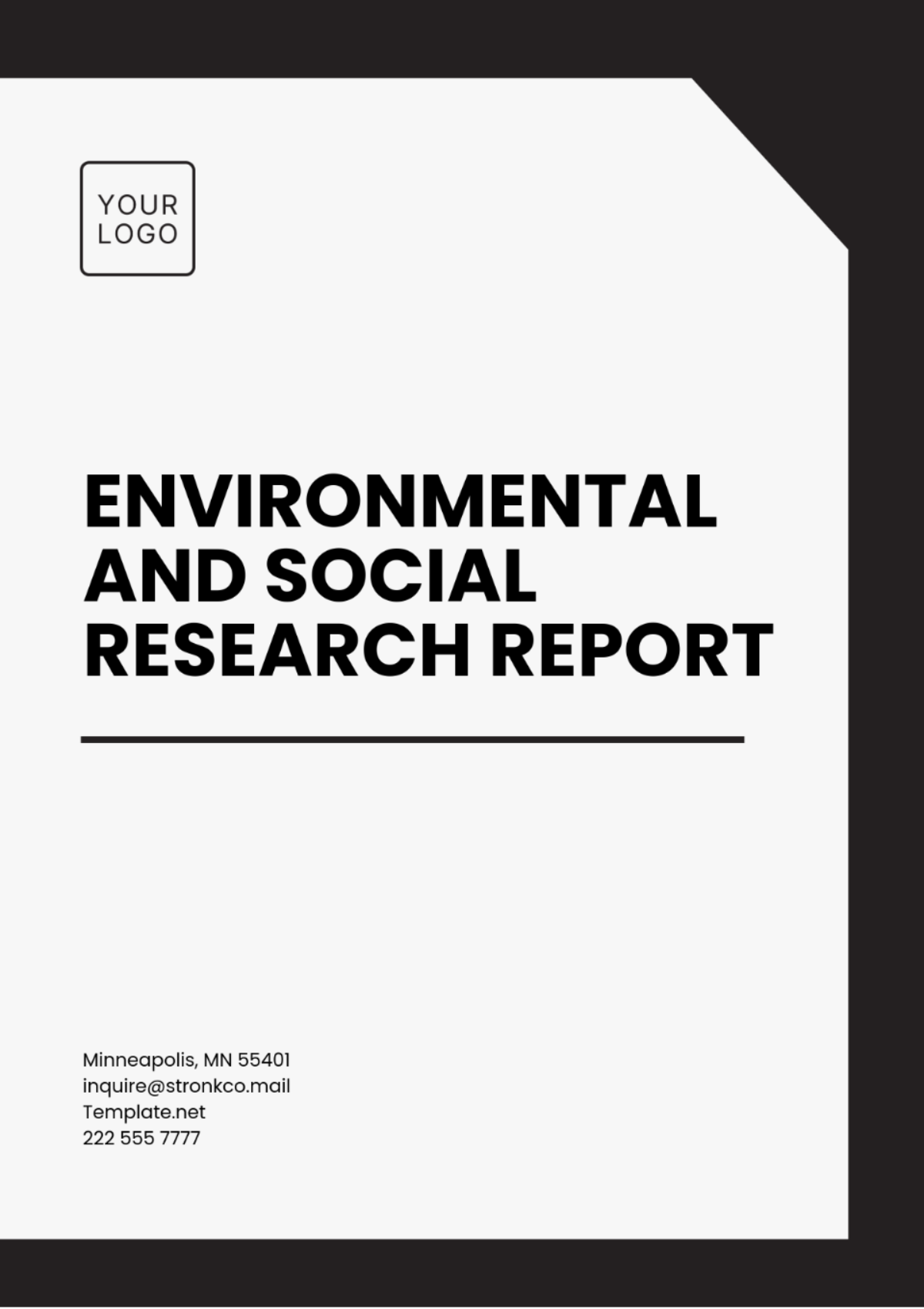
Prepared By: [Your Name]
Date: January 10, 2050
I. Introduction
This report delves into the intricate and interdependent relationship between environmental factors and social dynamics. Through thorough research and analysis, the aim is to highlight how these two pivotal spheres influence one another and explore potential impacts on our collective future. Environmental challenges such as climate change, pollution, and deforestation have cascading effects on social structures, economies, public health, and community resilience worldwide.
II. Environmental Research
A. Climate Change
Climate change remains one of the most pressing environmental challenges of our time. Resulting in extreme weather events, rising sea levels, and unpredictable patterns, climate change impacts communities, biodiversity, and economic activities on a global scale.
Rising global temperatures: Rising temperatures disrupt ecosystems, upset plant and animal balance, and expand desert-like conditions.
Expanding desertification: Changes in land use have a significant impact on agricultural productivity, which in turn affects food security.
Agricultural impact: Erratic and inconsistent weather conditions disrupt the natural cycle of crop development, significantly affecting the availability and stability of food supplies.
B. Pollution
Pollution, both from industrial and urban sources, continues to degrade air, water, and soil quality. The spread of pollutants affects human health, disrupts ecosystems, and contributes to substantial economic losses.
Type | Source | Impact |
|---|---|---|
Air Pollution | Vehicle emissions, industrial discharge | Respiratory diseases, climate effects |
Water Pollution | Industrial discharge, agricultural runoff | Damage to ecosystems, increased health risks |
Soil Pollution | Pesticides, industrial waste | Food safety risks, loss of soil fertility |
III. Social Implications
A. Economic Impacts
Environmental changes have significant implications for economic activities. Industries must comply with evolving environmental regulations, and communities face challenges in sustaining livelihoods due to shifting environmental conditions.
Workforce adaptation: As industries evolve, there is a growing demand for workers with skills suited to green jobs and sustainable practices.
Environmental compliance costs: New regulations increase business expenses, impacting their ability to sustain or enhance profits.
Agricultural adjustments: Farmers adapt crop practices to handle environmental changes, ensuring food security.
B. Health and Wellbeing
The social implications of environmental change extend to public health, with an increase in climate-related health issues, pollution-induced diseases, and mental health challenges stemming from environmental stressors.
Increase in vector-borne diseases: In warmer climate areas, the chances of diseases like malaria and dengue fever becoming more common are higher.
More frequent heat-related illnesses: Extreme temperatures lead to an increase in heat strokes and dehydration cases.
Mental health impacts: Environmental stressors and displacement due to climate change contribute to anxiety and stress-related conditions.
IV. Conclusion
The interconnected nature of environmental and social dynamics highlights the urgent need for holistic action. Environmental issues drive social consequences that affect public health, economic stability, and community well-being. Recognizing these linkages can inform more effective and sustainable solutions.
V. Recommendations
Addressing the challenges posed by environmental and social dynamics requires a coordinated, multi-stakeholder approach. Recommended strategies include:
Promoting greener technologies: Encourage industries to adopt sustainable practices, reducing emissions and conserving resources.
Implementing stricter environmental regulations: Governments should enforce policies to minimize pollution and protect ecosystems.
Building community resilience: Equip communities with adaptive tools to manage and mitigate environmental and social challenges, fostering long-term resilience.
- 100% Customizable, free editor
- Access 1 Million+ Templates, photo’s & graphics
- Download or share as a template
- Click and replace photos, graphics, text, backgrounds
- Resize, crop, AI write & more
- Access advanced editor
For researchers in environmental and social sciences, Template.net's Environmental and Social Research Report Template is an indispensable resource. This editable and customizable template features sections for background research, data findings, and analysis, designed to emphasize sustainability and social impact. Editable in our Ai Editor Tool, this template allows you to present data-driven results professionally, making complex findings easy to understand.
You may also like
- Sales Report
- Daily Report
- Project Report
- Business Report
- Weekly Report
- Incident Report
- Annual Report
- Report Layout
- Report Design
- Progress Report
- Marketing Report
- Company Report
- Monthly Report
- Audit Report
- Status Report
- School Report
- Reports Hr
- Management Report
- Project Status Report
- Handover Report
- Health And Safety Report
- Restaurant Report
- Construction Report
- Research Report
- Evaluation Report
- Investigation Report
- Employee Report
- Advertising Report
- Weekly Status Report
- Project Management Report
- Finance Report
- Service Report
- Technical Report
- Meeting Report
- Quarterly Report
- Inspection Report
- Medical Report
- Test Report
- Summary Report
- Inventory Report
- Valuation Report
- Operations Report
- Payroll Report
- Training Report
- Job Report
- Case Report
- Performance Report
- Board Report
- Internal Audit Report
- Student Report
- Monthly Management Report
- Small Business Report
- Accident Report
- Call Center Report
- Activity Report
- IT and Software Report
- Internship Report
- Visit Report
- Product Report
- Book Report
- Property Report
- Recruitment Report
- University Report
- Event Report
- SEO Report
- Conference Report
- Narrative Report
- Nursing Home Report
- Preschool Report
- Call Report
- Customer Report
- Employee Incident Report
- Accomplishment Report
- Social Media Report
- Work From Home Report
- Security Report
- Damage Report
- Quality Report
- Internal Report
- Nurse Report
- Real Estate Report
- Hotel Report
- Equipment Report
- Credit Report
- Field Report
- Non Profit Report
- Maintenance Report
- News Report
- Survey Report
- Executive Report
- Law Firm Report
- Advertising Agency Report
- Interior Design Report
- Travel Agency Report
- Stock Report
- Salon Report
- Bug Report
- Workplace Report
- Action Report
- Investor Report
- Cleaning Services Report
- Consulting Report
- Freelancer Report
- Site Visit Report
- Trip Report
- Classroom Observation Report
- Vehicle Report
- Final Report
- Software Report






